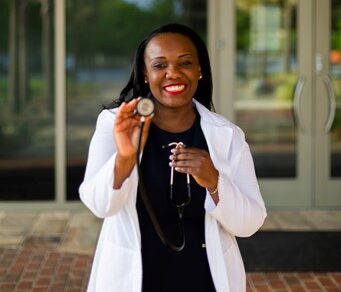
Every woman should have a comprehensive gynecological examination each year, even when they’re generally feeling healthy and well. While many people see them as a chore, these examinations are key to protecting women’s reproductive (and overall) health.
Chike Aguh Gynecologist notes that obtaining regular exams puts women back in their health’s driver’s seat, ensuring they protect themselves from STDs, endometriosis, ovarian cysts, and many other conditions.
Taking a Proactive Approach to Gynecology Care
Women are at risk of developing health conditions that negatively impact their reproductive organs, and data published by the National Institute of Child Health and Human Development shows that up to 15% of women in the US deal with chronic pelvic pain.
Likewise, conditions like ovarian cysts, endometriosis, and uterine fibroids cause symptoms like pain, abnormal bleeding, and more. However, it’s impossible to identify the root cause without visiting a doctor for a formal diagnosis.
A few conditions can even cause pain without other noticeable symptoms — a major one being endometriosis. And without routine exams, can go undetected for years. Cervical cancer is another one that can develop if Pap smears aren’t conducted routinely to nip the condition in the bud.
In the same vein, STDs (sexually transmitted diseases) don’t necessarily present symptoms. But when left untreated and/or undetected, can lead to infertility, cancer, and similar problems.
Being proactive about gynecological care allows women to better understand their body and get any questions answered by professionals akin to their unique situation. Not to mention it helps them monitor their health before they become advanced.
Highlighting the Importance of Routine Care
Digging further into the importance of gynecological examinations, professionals highlight several reasons why women should see a gynecologist at least once per year:
- General health — Starting routine exams during teenage years is a must to ensure women develop a baseline for their gynecological health. Annual check-ups reveal changes or issues of concern, ensuring early detection for more successful treatment.
- Unusual growths and changes — Pelvic exams find changes and unusual growths that may have developed, alongside sexually transmitted infections (STIs). Those with menstrual disorders, abnormal discharge, or perimenopause are more prone to complications. Therefore, obtaining annual examinations is more critical for such patients.
- Detecting underlying causes — Irregular periods could be the sign of an underlying condition that will only be detected through a routine exam.
- Cancer and other abnormalities — Pap smears, a core part of annual gynecological exams, are sent to laboratories to be examined for otherwise undetectable cancer and abnormal indicators.
- Learning birth control options — Sexually active people who don’t want to become pregnant should certainly visit the gynecologist regularly to learn about the best birth control options for them. Doctors will outline the effectiveness of each type and the style that best suits the patient’s lifestyle.
- Keeping an eye on breast health — Gynecologists also check breast health during yearly visits. The manual breast exam will check for tissue masses or other lumps to detect cancer of other health concerns.

Routine gynecological care stands as a cornerstone of women’s overall health and wellbeing. It is through these regular visits that women can empower themselves with knowledge, prevention, and early intervention.
By prioritizing their reproductive health and staying connected with healthcare professionals, women can ensure that potential concerns are addressed promptly. In a world where women’s health is pivotal to the strength of families, communities, and societies, routine gynecological care emerges as a vital step towards fostering a future defined by empowerment, longevity, and resilience.



